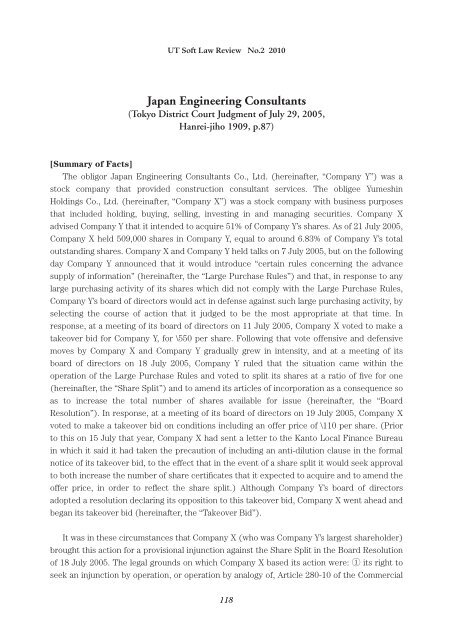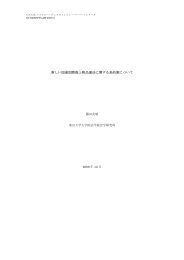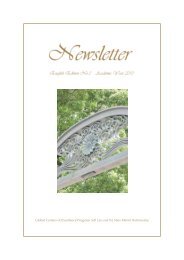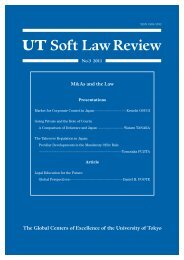UT Soft Law Review
UT Soft Law Review
UT Soft Law Review
You also want an ePaper? Increase the reach of your titles
YUMPU automatically turns print PDFs into web optimized ePapers that Google loves.
<strong>UT</strong> <strong>Soft</strong> <strong>Law</strong> <strong>Review</strong> No.2 2010Japan Engineering Consultants(Tokyo District Court Judgment of July 29, 2005,Hanrei-jiho 1909, p.87)[Summary of Facts]The obligor Japan Engineering Consultants Co., Ltd. (hereinafter, “Company Y”) was astock company that provided construction consultant services. The obligee YumeshinHoldings Co., Ltd. (hereinafter, “Company X”) was a stock company with business purposesthat included holding, buying, selling, investing in and managing securities. Company Xadvised Company Y that it intended to acquire 51% of Company Y’s shares. As of 21 July 2005,Company X held 509,000 shares in Company Y, equal to around 6.83% of Company Y’s totaloutstanding shares. Company X and Company Y held talks on 7 July 2005, but on the followingday Company Y announced that it would introduce “certain rules concerning the advancesupply of information” (hereinafter, the “Large Purchase Rules”) and that, in response to anylarge purchasing activity of its shares which did not comply with the Large Purchase Rules,Company Y’s board of directors would act in defense against such large purchasing activity, byselecting the course of action that it judged to be the most appropriate at that time. Inresponse, at a meeting of its board of directors on 11 July 2005, Company X voted to make atakeover bid for Company Y, for \550 per share. Following that vote offensive and defensivemoves by Company X and Company Y gradually grew in intensity, and at a meeting of itsboard of directors on 18 July 2005, Company Y ruled that the situation came within theoperation of the Large Purchase Rules and voted to split its shares at a ratio of five for one(hereinafter, the “Share Split”) and to amend its articles of incorporation as a consequence soas to increase the total number of shares available for issue (hereinafter, the “BoardResolution”). In response, at a meeting of its board of directors on 19 July 2005, Company Xvoted to make a takeover bid on conditions including an offer price of \110 per share. (Priorto this on 15 July that year, Company X had sent a letter to the Kanto Local Finance Bureauin which it said it had taken the precaution of including an anti-dilution clause in the formalnotice of its takeover bid, to the effect that in the event of a share split it would seek approvalto both increase the number of share certificates that it expected to acquire and to amend theoffer price, in order to reflect the share split.) Although Company Y’s board of directorsadopted a resolution declaring its opposition to this takeover bid, Company X went ahead andbegan its takeover bid (hereinafter, the “Takeover Bid”).It was in these circumstances that Company X (who was Company Y’s largest shareholder)brought this action for a provisional injunction against the Share Split in the Board Resolutionof 18 July 2005. The legal grounds on which Company X based its action were: 1 its right toseek an injunction by operation, or operation by analogy of, Article 280-10 of the Commercial118





